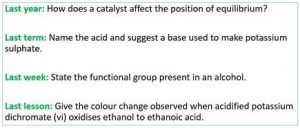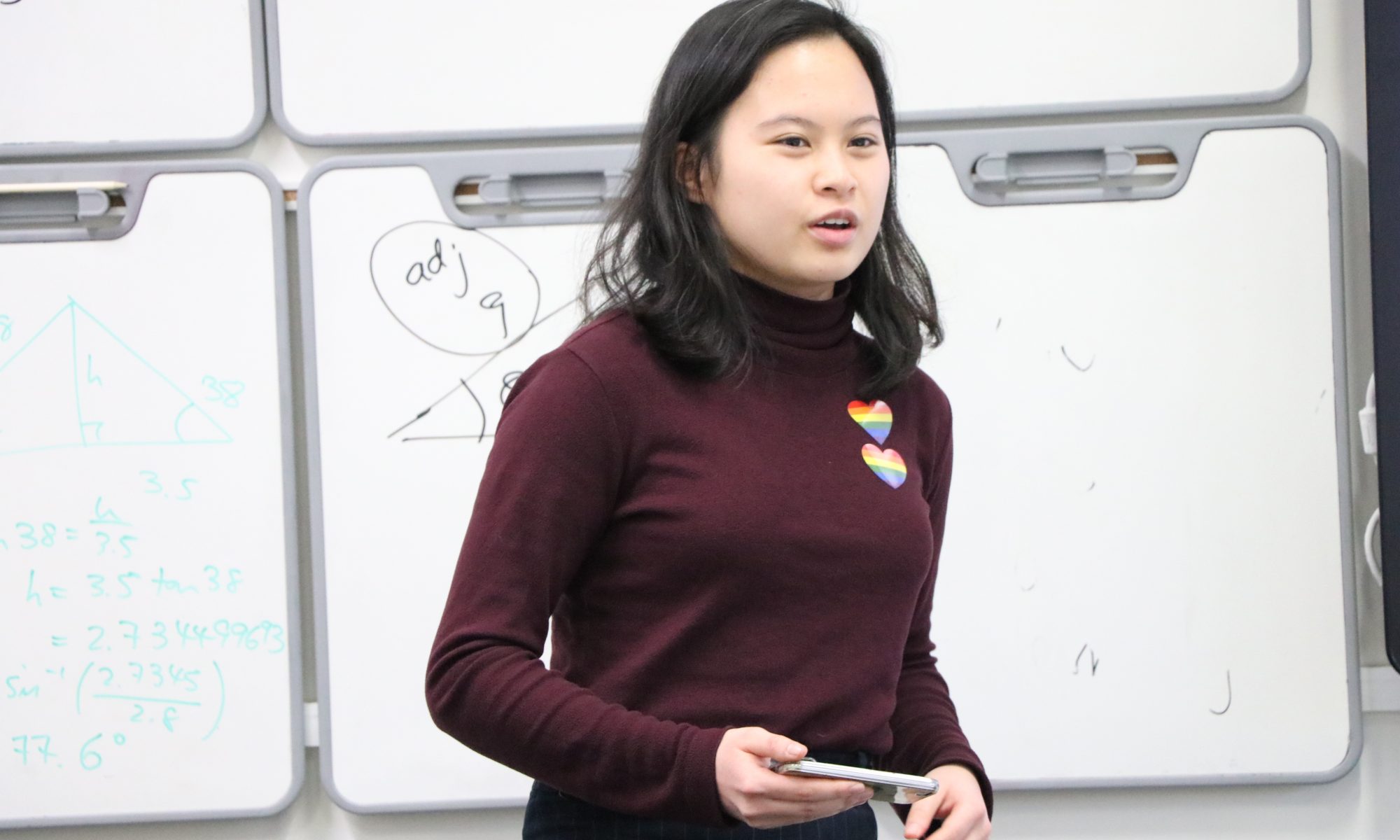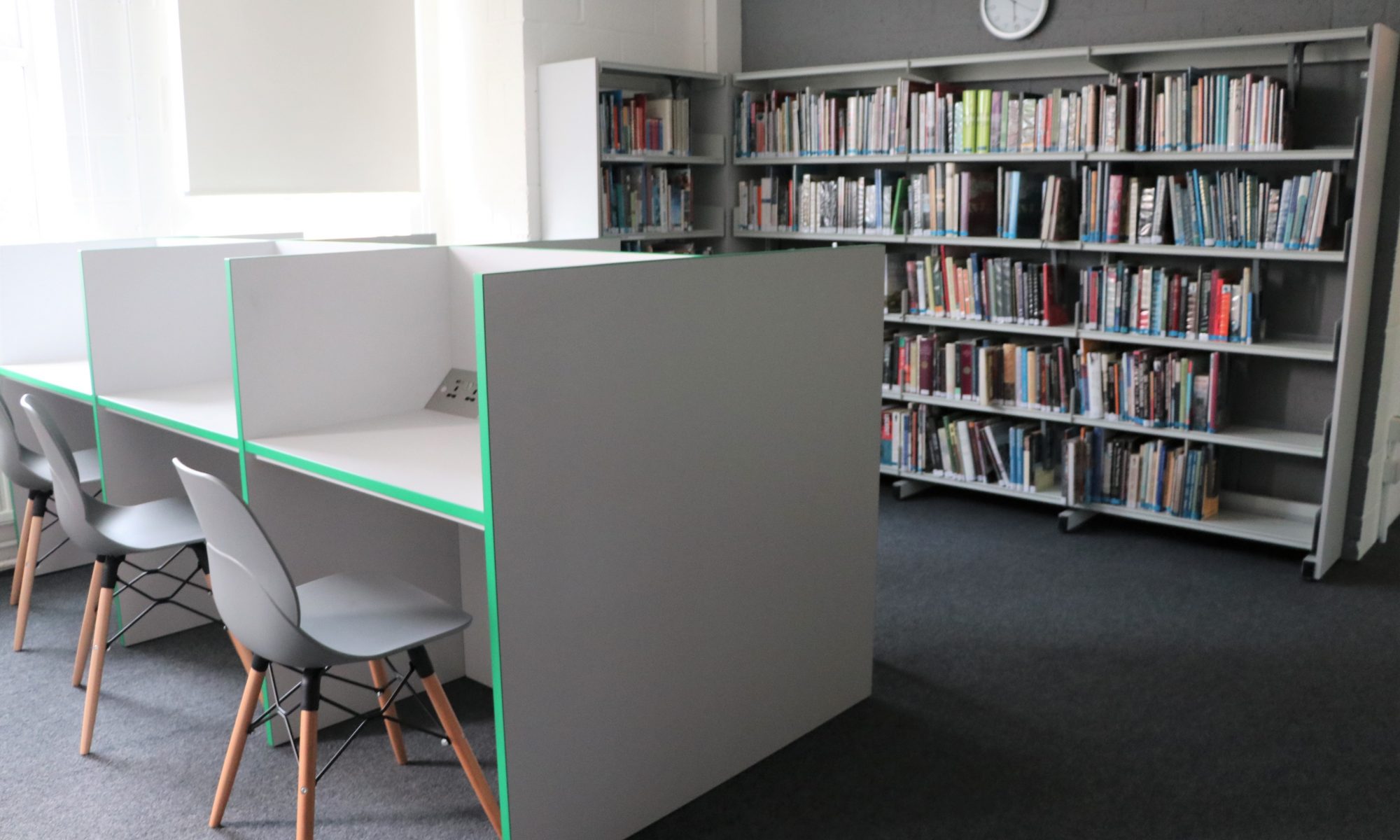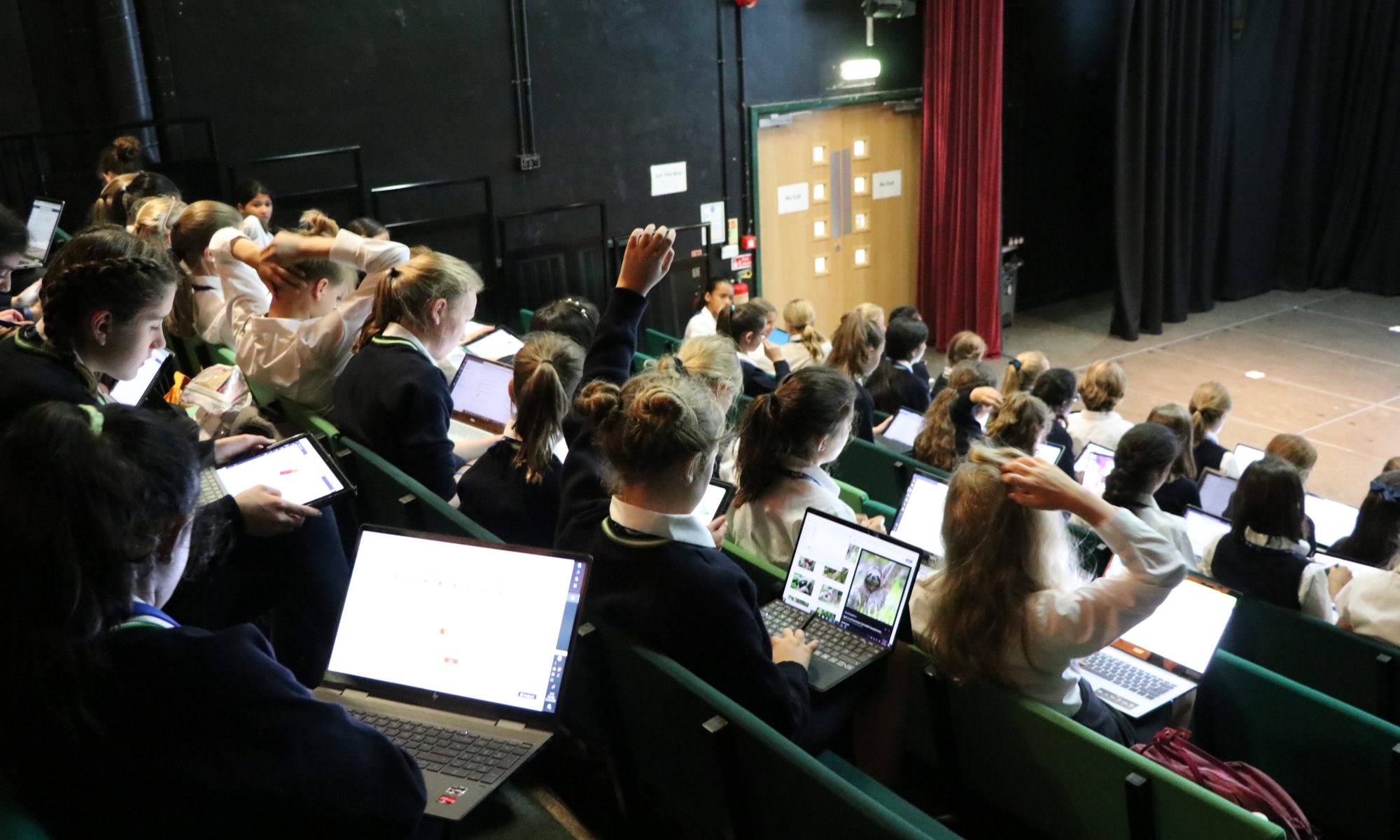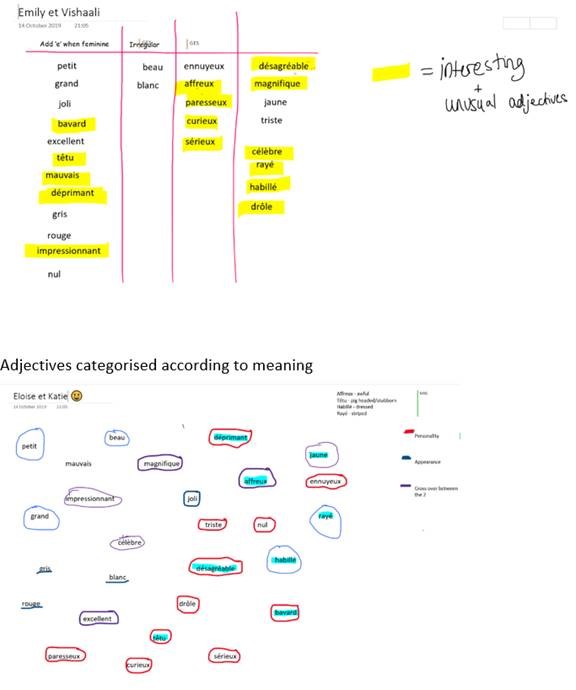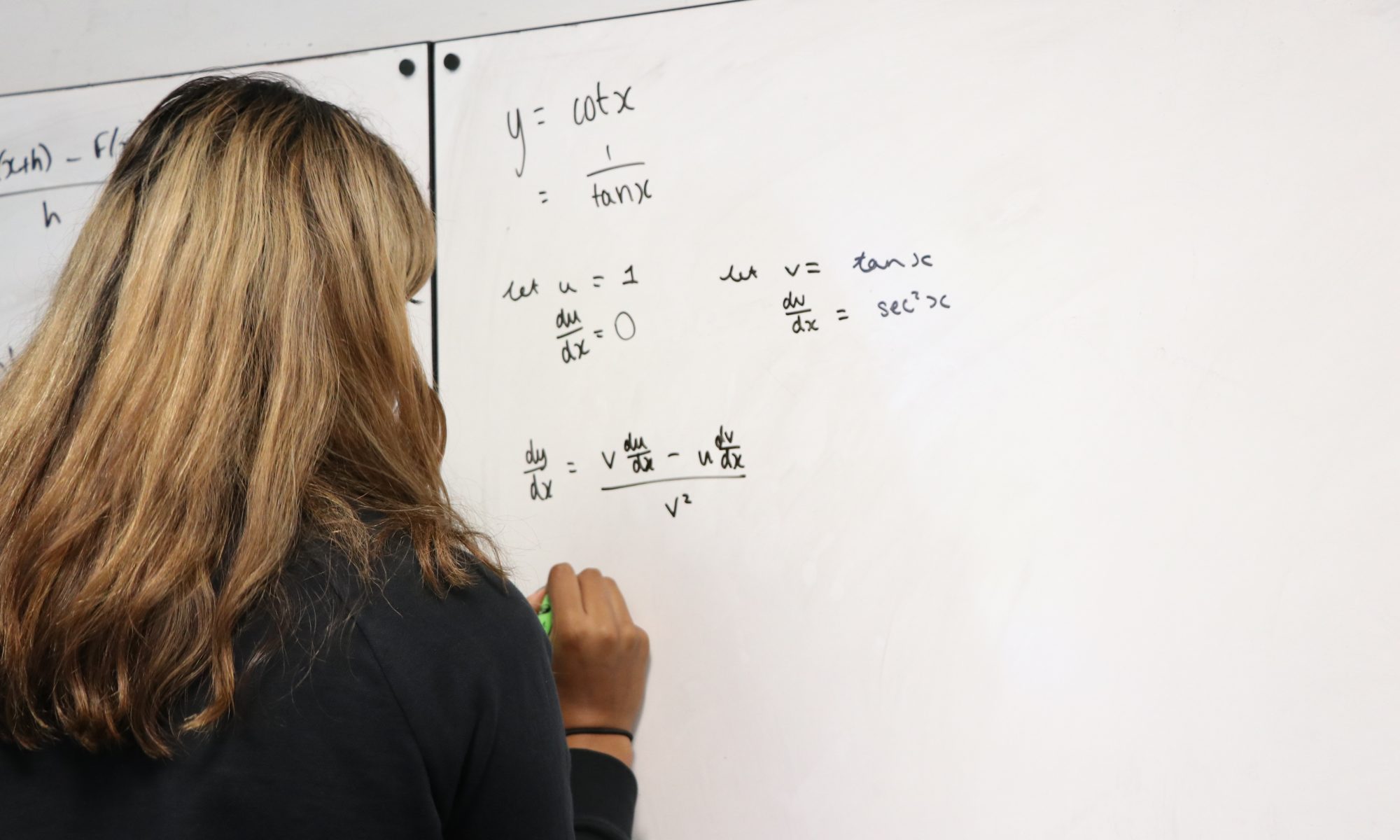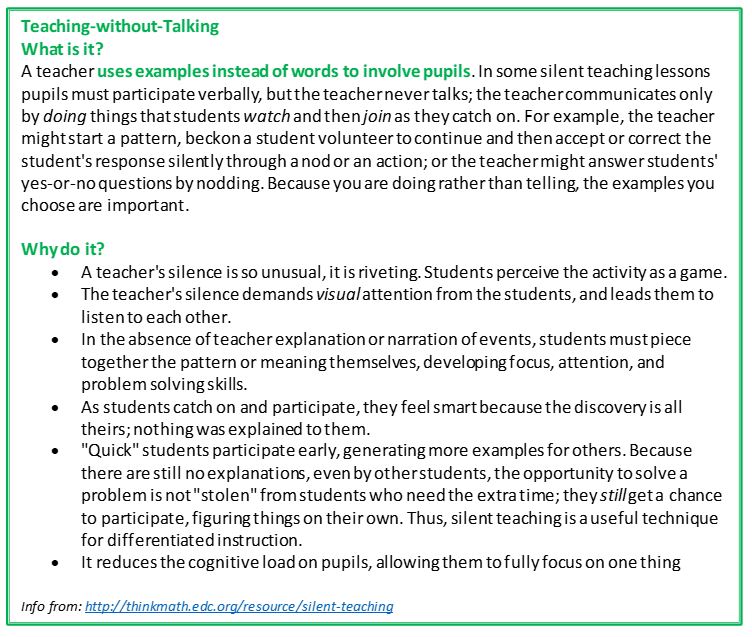This idea comes from Nazlee, who shared it with the assessment and work scrutiny working party this week. It’s a quick but powerful way to start a double lesson with some low stakes retrieval of prior learning in order to strengthen long term memory.
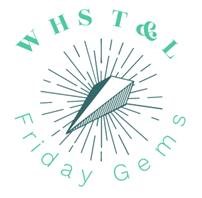
What is it?
- At the start of a double, put on the board three to four short questions/activities.
- They should require pupils to recall prior learning from last lesson, last week, last term and last year.
- They questions should be quick to complete and quick for the teacher to check in class.
- This should take no more than 10mins in total.
This is effective because…
- Interleaving and spaced retrieval practice are both proven to strengthen long term memory. Increasing storage strength is really important for our bigger, linear GCSEs and A Levels. Here are two great articles from the ‘Learning Scientists’:
- Studies show that low stakes testing deepens learning: assessment as learning.
- Routine knowledge recall produces better organisation of knowledge/concepts for pupils. Powerful schema are built in the pupil’s memory.
- Immediate feedback allows teacher to quickly put right any misunderstandings (shown to be important in consolidating learning) and it identifies gaps in understanding to be addressed.
Examples from Nazlee (Maths) and Mary (Chemistry):
Maths Year 7:
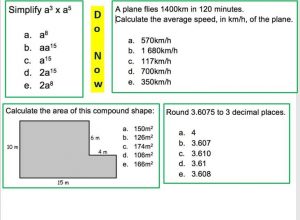
Maths A Level:
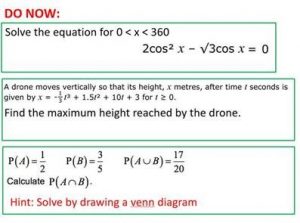
Year 11 Chemistry:
